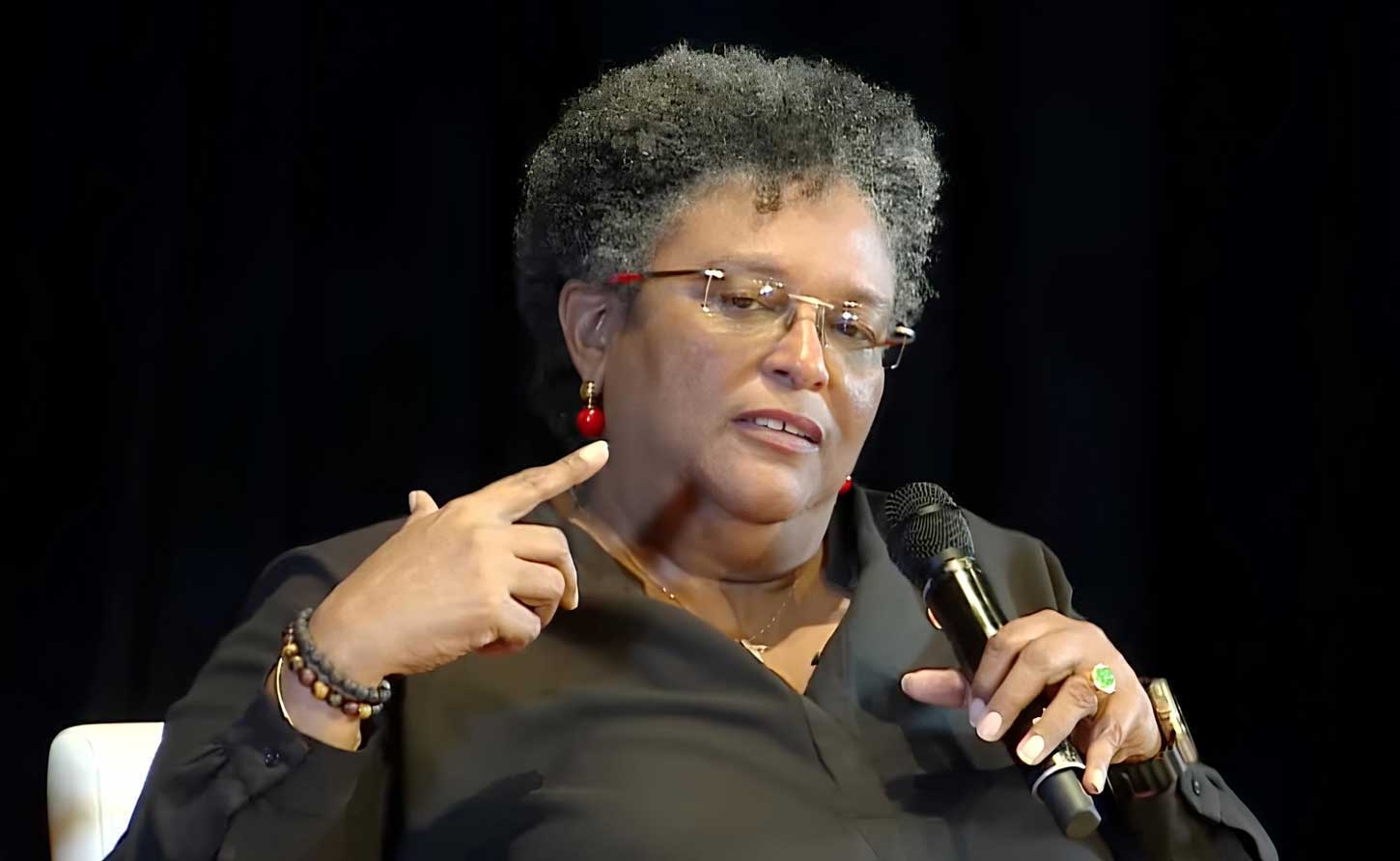BARBADOS | Mottley aims to strengthen CARICOM unity amid global challenges

MONTEGO BAY, Jamaica, January 2, 2024 - As global uncertainties mount in 2025, Caribbean Community (CARICOM) chairman Mia Mottley has again placed the Single Market and Economy (CSME) issue of free movement of nationals on the front burner, along with the matter of food security through the "Vision 25 by 2025" agenda.
In a sweeping New Year's address, Mottley, who also serves as Barbados' prime minister, issued a clarion call for regional unity, positioning the Caribbean not just as a geographic space but as a "living testament to courage, creativity, and collective strength.
She "outlined an ambitious vision for the 15-member regional bloc, emphasizing the critical need to fully implement the CARICOM Single Market and Economy (CSME) after a five-year pause due to COVID-19.
"How we act, united as a people and as nations, will define not only this year, 2025, but the legacy of our generation," Mottley declared, against a backdrop of lingering pandemic aftershocks, worsening climate threats, and global conflicts from Gaza to Ukraine.
The CARICOM leader highlighted several pressing challenges facing the region, including the multifaceted crisis in Haiti and delicate relations between Guyana and Venezuela.
Yet she framed these challenges as catalysts for adaptation and bold action, arguing that the Caribbean must "not only weather these storms but lead in crafting solutions for a changing world."
Central to Mottley's vision is the revival of the CSME, which she characterized as more than just an economic framework. The initiative, allowing free movement of goods, skills, labor, and services across the region, represents "a vision of unity and opportunity for small states who know they can achieve so much more together than individually."
The integration movement has also set its sights on ambitious food security targets through the "Vision 25 by 2025" agenda, initiated in 2021. Mottley emphasized the need to implement key recommendations from the CARICOM Commission on Economy, which were initially sidelined during the pandemic's peak. "The pooling of our sovereignty," she stressed, "must also be better addressed by the pooling of our efforts, from investment to skills to procurement."
Turning to global financial reform, Mottley took aim at systemic inequities affecting Small Island and Low-lying Developing States (SIDS). She highlighted the twin challenges of "unjust blacklisting practices and insufficient access to concessional financing" that continue to hamper sustainable development in the region.
The CARICOM chairman pledged to persist with reforms championed in the Bridgetown Initiative, working alongside 73 vulnerable countries in the Climate Vulnerable Forum.
A significant focus of her address centered on regional security, with Mottley highlighting the George-Bridge Declaration's commitments to tackle crime and violence as public health issues.
The declaration, reached in Guyana, calls for innovative approaches to law enforcement and modernization of criminal justice systems across the Caribbean.
Looking toward cultural justice, Mottley welcomed the second decade for people of African descent, beginning January 1, 2025. She emphasized the region's achievements during the first decade, including global recognition of the 10-point plan for reparatory justice.
However, she insisted that "much remains to be done," calling for "mature, face-to-face conversation" about historical exploitation through slavery and colonialism.
Her message concluded with a bold vision for the Caribbean's digital future, emphasizing that in an era of artificial intelligence, the region cannot afford to be left behind.
Mottley particularly highlighted the "morally unacceptable" reality of 600 million Africans lacking electricity access in the AI age, pledging to strengthen ties with the African Union as part of the Caribbean's role in the African diaspora.
Throughout her address, Mottley wove together themes of regional cooperation, social justice, and technological advancement with the philosophy of Ubuntu – "I am because we are."
This principle, she suggested, must guide the Caribbean's approach to establishing a fundamental "floor of rights" for all its people, ensuring minimum protections while encouraging individual and collective progress.
Looking ahead, Mottley positioned the Caribbean not just as a collection of small states facing common challenges, but as a unified force capable of leading global conversations on climate resilience, economic justice, and regional integration.
As the region navigates through 2025's complex landscape, she argued, its success will depend not just on policy implementation but on the collective will of Caribbean people to shape their shared destiny.
-30-
